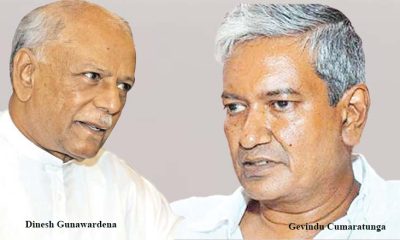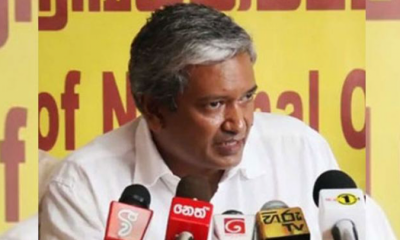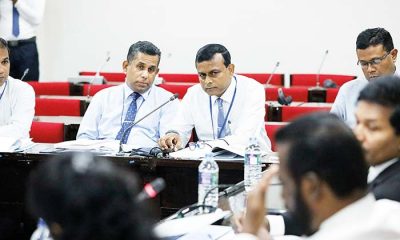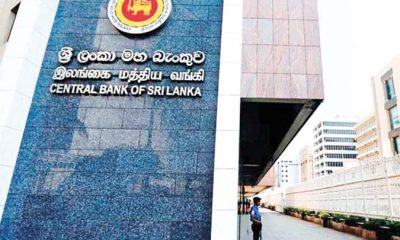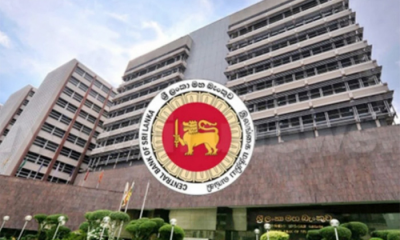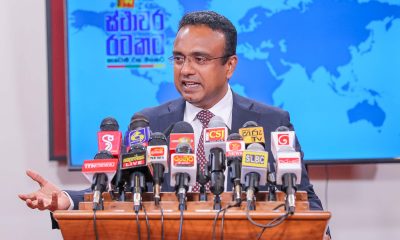Business
Charting Sri Lanka’s economic future: Current challenges and strategies for resilient growth
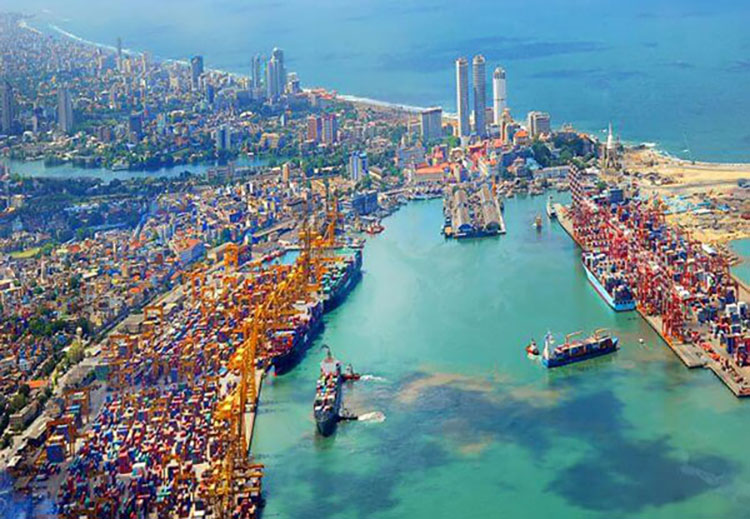
By Rasith Wickremasinghe COYLE Chairman
The Sri Lankan economy currently grapples with the significant challenges presented by a complex financial situation unfolding in unprecedented ways. As the country tackles the intricacies of this economic turmoil to overcome fiscal obstacles, there is a prevailing sense of concern among the populace. Against this backdrop, the nation contends with politically motivated decision-making that bears the marks of a presidential election at the end of 2024.
Despite these existing realities, we remain optimistic about the rising potential through collective efforts and shared objectives driven by the nation’s private sector, aiming to revitalize the economy. In the present circumstances, positive indicators emerge as macroeconomic policy reforms start showing concrete outcomes, signalling a promising phase of stabilization in Sri Lanka’s economic landscape. Nonetheless, the path to recovery and inclusive growth relies on maintaining the ongoing momentum of these reforms.
Looking at the recent upgrade of Sri Lanka’s local currency rating from selective default (SD) to CCC+/C by S&P Global Ratings, there is a reflection of a more optimistic view of the country’s solvency. This upgrade follows the finalization of a domestic debt restructure, including collaboration with superannuation funds (EPF/ETF) and the Central Bank. https://www.fitchratings.com/research/sovereigns/fitch-upgrades-sri-lanka-long-term-local-currency-idr-to-ccc-28-09-2023
The completion of the first IMF review under the 48-month Extended Fund Facility marks a significant milestone, unlocking access to SDR 254 million (about US$337 million) to support the country’s economic policies and reforms. Notably, Sri Lanka’s performance under the program has been deemed satisfactory, with the majority of performance criteria and indicative targets met by the end of June.
The publication of the Governance Diagnostic Report showcases a pioneering step, positioning Sri Lanka as the first country in Asia to undergo this IMF exercise. The commendable progress made by the authorities in restoring debt sustainability, raising revenue, and ensuring financial stability reflects a positive trajectory. Moving forward, a strong commitment to improving governance and protecting the welfare of the vulnerable will be crucial, laying the foundation for a resilient and prosperous economic future.
Examining Sri Lanka’s net general government debt, which currently exceeds 100% of GDP and is projected to persist until at least 2028, there are challenges ahead. Addressing concerns about long-term sustainability, potential positive shifts can be driven by factors such as nominal GDP growth, successful fiscal consolidation, increased revenue generation, current interest rates, and the positive impacts of future restructuring efforts. By navigating these aspects effectively, Sri Lanka has the potential to enhance its fiscal outlook and achieve more favourable outcomes in the coming years. https://www.fitchratings.com/research/sovereigns/fitch-upgrades-sri-lanka-long-term-local-currency-idr-to-ccc-28-09-2023
It’s noteworthy that Sri Lanka’s Budget for 2024 presents ambitious targets, though they pose challenges, particularly with the projected wider fiscal deficit of 9.1% of GDP. The government’s focus on achieving a primary surplus, excluding bank recapitalization, aligns with the IMF’s projections. However, the expenditure target of 22.2% of GDP exceeds the IMF’s envisioned 19.7%. While this discrepancy may raise questions, it also reflects a commitment to ambitious goals, and successful implementation could enhance the budget’s long-term viability and effectiveness. https://island.lk/sri-lankas-ambitious-budget-agenda-faces-high-implementation-risks-fitch-ratings/
Fitch Ratings has already expressed concerns about the government’s plan to reach its revenue target by 2024. Sri Lanka has a history of not meeting fiscal goals, with revenue collection falling short by 29% in the first nine months of 2023. Recently, the government has planned a revenue increase of nearly 45% in 2024, with a confirmed 3-percentage-point rise in the value-added tax to 18%.
We believe as far as tax revenue is concerned, widening the tax net or the number of taxpayers in the country is more critical than raising the percentage values. Only as little as 2.6% of Sri Lanka’s total workforce of 4.64 million is subjected to the PAYE income tax. Nearly half of the labour force receives less than Rs.30,000 monthly salary, while 3.91 million families, out of 5.8 million families, are seeking state assistance to continue their livelihoods. In 2021, there were about 105,000 registered companies, and 60,721 had income tax files, from which 82 per cent of the corporate income taxes were paid by 342 companies. https://economynext.com/sri-lanka-only-has-137-persons-who-paid-income-taxes-of-rs5mn-or-more-legislator-100108/#:~:text=Sri%20Lanka%20in%202021%20had,were%20paid%20by%20342%20companies
What baffles us mostly is the number of tax files reported by the inland revenue which is recorded to be only 500,000 as per the Commissioner Association Inland Revenue department. https://www.newsfirst.lk/2023/07/27/tott-only-500-000-tax-files-in-sri-lanka-president-commissioner-association-27-07-2023/ . If the recorded number of tax files is only 500,000 out of the 5.8 Million families in Sri Lanka, we must ask the question of what has happened to the rest of the taxpayers.
Several businesses in Sri Lanka, whether small, medium, or large, conduct their transactions mainly through cash. Despite how much they earn, there can be several loopholes they can harness for tax evasion. Even though it is apparent in many ways, there is little to no step taken forward to curb the issue owing to political gains or the mass displeasures that could arise curbing the future of many political affiliates in the decision-making process.
Concurrently, the growing wealth gap between the affluent and less privileged segments of the population is reaching alarming levels, compelling numerous skilled professionals to seek better opportunities abroad.
It’s not just the taxation system; the government’s inability to overhaul unprofitable state-owned enterprises (SOEs) adds to the discontent. The weight of these financially struggling entities falls disproportionately on a limited number of taxpayers, causing widespread chaos that ripples through the entire system. This, in turn, has a cascading impact on the economy and Sri Lankan society. An aspect often overlooked by many governing parties owing to their political future. Given that a significant portion of those affected by these restructuring efforts comprises a substantial voter base and influential circles in the country, there appears to be a reluctance among decision-makers to take the necessary corrective actions.
One of the contributing factors for the IMF to provide the second tranche was the promise to reduce the commercial bank interest rates to single digits, which is yet to be done. Even though the president and the CBSL have requested the above, several parties have been insensitive about the situation and requests. As COYLE, we emphasize the importance of expanding the tax potential net and then further tracking the registered yet inactive member mass. However, we can observe, that the government is now distracted to a path more concerned with securing votes for the upcoming elections as opposed to the earlier economic revival path, which has diminished its momentum from the critical pace of decision-making on SOE restructuring.
This will bring us to COYLE’s point of view on how we can set further to solve the foreign currency deficit by adopting different and dynamic strategies. At COYLE, we believe Sri Lanka must look at foreign direct investments with changing state policy decisions to have a more attractive and investor-friendly outlook to attract numerous investors from booming industries. We urge the Parliamentary Select Committee on Ease of Doing Business to reactivate and pursue proactive steps towards ensuring FDIs are secure in the country without further delay.
Business
Binance signals a maturing Crypto pitch in Sri Lanka
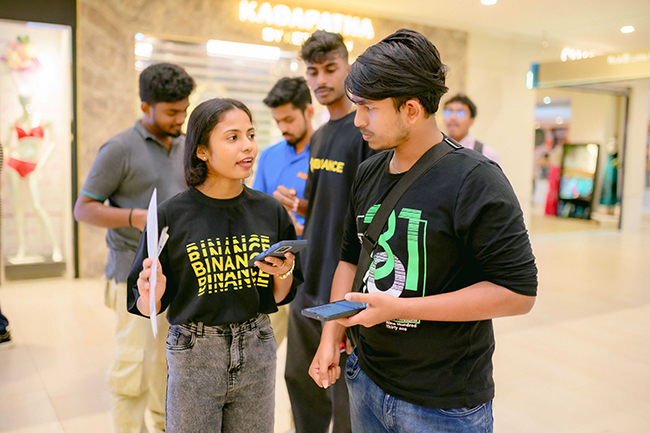
Frames crypto investing as a ‘measured journey rooted in knowledge and security’
In an industry often characterised by velocity, volatility and viral marketing, Binance’s latest community activation in Sri Lanka suggested a deliberate recalibration of its investor messaging.At its #BinanceHODLove event held at One Galle Face Mall, the world’s largest crypto exchange by trading volume chose a Valentine’s-themed slogan that stood out for its restraint: “Real Love Doesn’t Rush, Neither Should Crypto: A Valentine’s Message for Smart Investors.”
Behind the seasonal branding lies a more strategic theme – one that aligns with the crypto industry’s post-cycle shift toward compliance, literacy and risk awareness.
Sri Lanka’s retail investor base has demonstrated periodic interest in digital assets, particularly during phases of currency pressure and global crypto rallies. Yet market participation has also exposed gaps in financial literacy and susceptibility to high-yield promises.
Binance’s messaging at the event leaned heavily into investor caution. Participants were reminded to scrutinise unsolicited offers, avoid guarantees of quick returns, and protect sensitive information such as private keys and passwords. In a market where informal crypto schemes have occasionally surfaced, such emphasis reflects reputational risk management as much as community engagement.
The company also spotlighted Binance Academy, its educational platform, positioning knowledge acquisition as foundational to long-term participation in blockchain ecosystems.
While the event featured raffles and consumer electronics giveaways to drive footfall, the broader objective appeared to be brand consolidation at the grassroots level. Physical activations in high-traffic urban centres suggested a hybrid strategy: digital scale complemented by localised trust-building.
For a global exchange operating in increasingly scrutinised regulatory environments, nurturing responsible retail participation is both a defensive and expansionary move. By framing crypto investing as a “measured journey rooted in knowledge and security,” Binance is aligning itself with the industry’s pivot toward sustainability rather than speculative exuberance.
The subtext of the campaign was clear: growth in emerging markets like Sri Lanka will depend less on price momentum and more on credibility.
Binance’s Valentine’s message, therefore, may be less about romance and more about risk calibration. In that sense, the slogan captured a broader industry truth: endurance, not impulse, will define the next phase of digital asset adoption.
By Sanath Nanayakkare
Business
Unlisted tax jitters frizzle CSE rally; analysts flag spillover fears

Morning gains on the Colombo Stock Exchange (CSE) evaporated sharply in afternoon trade yesterday, as a wave of nervous selling swept through the market triggered by speculation that the government is mooting a fresh 10-15 percent tax on unlisted corporates. Although the proposed levy is currently targeted at entities outside the CSE purview, market participants grew wary that the measure could signal a broader shift in fiscal policy, stoking fears of future tax hikes that may eventually engulf listed companies and dent corporate earnings.
Amid those developments, the turnover was capped at a mere Rs 369 million despite fourteen crossings.
The top seven crossings mainly contributed to the turnover were Commercial Bank 1.60 million shares crossed to the tune of Rs 359.7 million and its share price traded at Rs 223, Renuka Foods 2.7 million shares crossed to the tune of Rs 179.6 million and its share price traded at Rs 63.50, LOLC Holdings 300,000 shares crossed to the tune of Rs 171.9 million and its share price traded at Rs 573, Sampath Bank 821,000 shares crossed to the tune of Rs 132 million and its share price traded at Rs 161, Commercial Bank (Non-Voting) 484,000 shares crossed to the tune of Rs 98.9 million and its share price traded at Rs 204, Sierra Cables two million shares crossed to the tune of Rs 69.6 million and its share price traded at Rs 34.80 and Citizens Developments Business Bank (Non-Voting) 200,000 shares crossed to the tune of Rs 62.9 million and its share price traded at Rs 324.
In the retail market top seven companies that have mainly contributed to the turnover were Renuka Agri Rs 1.14 billion (82.4 million shares traded), Softlogic Finance Rs 653.9 million (115 million shares traded), Sampath Bank Rs 270.8 million (1.65 million shares traded), Softlogic Capital Rs 230 million (19.3 million shares traded), JKH Rs 201 million (nine million shares traded) ,LOLC Holdings Rs 171.9 million (297,000 shares traded) and LMF Rs 171 million (1.8 million shares traded). During the day 369 million shares volumes changed hands in 39059 transactions.
It is said that banking and agriculture related companies performed well. In the banking sector Sampath Bank and Commercial Bank performed well. Further manufacturing sector especially JKH also significantly active in the market.
By Hiran H Senewiratne
Business
ComBank loan book grows by Rs. 541bn to top Rs. 2tn

The Commercial Bank of Ceylon achieved another performance milestone in 2025, becoming the first private sector bank in the country to expand its loan book beyond Rs. 2 Tn., with a growth of Rs. 541 Bn. over 12 months at a monthly average of over Rs. 45 Bn., demonstrating its commitment to national economic resurgence.
Recording the highest annual loan growth in absolute terms in the history of the institution, the Bank said gross loans and advances for the year ending 31st December 2025 grew by 36.37% to Rs. 2.028 Tn., taking total assets to Rs. 3.258 Tn. This reflected an increase of Rs. 468 Bn. or 16.78% and demonstrated more than double the growth recorded in 2024. The Bank’s net assets value per share improved to Rs. 198.30 from Rs. 170.94 at end 2024.
Deposits grew by 16.65% or Rs. 372 Bn. over the 12 months to end the year at Rs. 2.6 Tn., reflecting an average deposit growth of over Rs. 30 Bn. per month despite relatively lower interest rates, the Bank said. The CASA ratio of the Bank, which is considered to be the industry’s best, stood at 39.65% from 38.07% as at 31st December 2024.
Sharhan Muhseen, Chairman of Commercial Bank said: “We remain focused on the fundamentals that sustain shareholder value: earnings resilience, balance sheet strength, disciplined risk management and a strategy that is responsive to evolving customer and market needs. Our 2025 performance affirms the value of that focus.”
Sanath Manatunge, Managing Director/CEO of Commercial Bank said: “In 2025, we proved that scale and discipline can move together, growing lending and accelerating digital activity while strengthening asset quality and balance sheet resilience.”
In a filing with the Colombo Stock Exchange (CSE) the Bank said it recorded gross income of Rs. 354.81 Bn. for the year ending 31st December 2025 reflecting growth of 13.70% over the normalised figure for 2024, after adjusting for the impacts of restructuring of Sri Lanka International Sovereign Bonds (SLISBs) accommodated in that year, in order to avoid potential distortion of growth figures. Net gains / (losses) from derecognition of financial assets in the Income Statement for 2024 (as reported) included a derecognition loss on restructuring of SLISBs amounting to Rs. 45.108 Bn.
-

 Features6 days ago
Features6 days agoWhy does the state threaten Its people with yet another anti-terror law?
-

 Features6 days ago
Features6 days agoReconciliation, Mood of the Nation and the NPP Government
-

 Features6 days ago
Features6 days agoVictor Melder turns 90: Railwayman and bibliophile extraordinary
-

 Features5 days ago
Features5 days agoLOVEABLE BUT LETHAL: When four-legged stars remind us of a silent killer
-

 Features6 days ago
Features6 days agoVictor, the Friend of the Foreign Press
-

 Business5 days ago
Business5 days agoSeeing is believing – the silent scale behind SriLankan’s ground operation
-

 Business5 days ago
Business5 days agoBathiya & Santhush make a strategic bet on Colombo
-

 Features6 days ago
Features6 days agoBarking up the wrong tree


